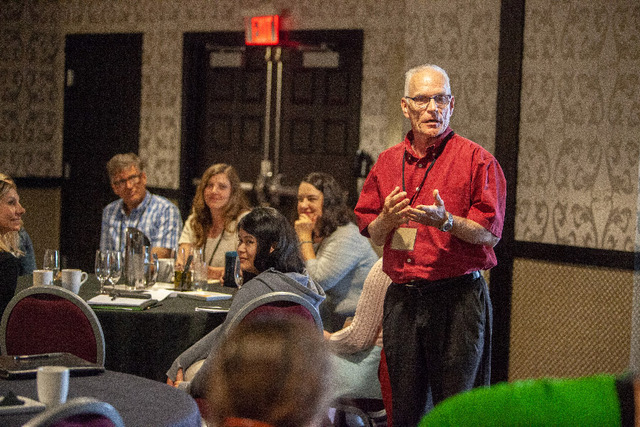OB‘s fifth annual green workplace seminar highlighted financial vs. emotional incentives for going green and raised question about greening local offices of a national operation.
If companies are serious about sustainability, “they have to pay someone to do it,” said Matt Markstaller, facilities manager for Daimler Trucks NA and one of three panelists who spoke during the Hack your Green Workplace seminar yesterday at The Nines Hotel.

Jordan Folks, a senior consultant with Research into Action, said studies show what really motivates people to go green are some of the side benefits, such as the warmth, color and comfort associated with some new energy efficient technologies.
Folks warned against using “shame” as a tactic to get co-workers to do things like turn off their computers at night. Instead he made a case for incentives, like placing chocolate kisses on the keyboards.
Office green team members should tailor strategies depending on the age of management, panelists said. Millennial leaders are willing to pay for greener practices, while older executives leading large public companies need to be convinced of the financial benefit.

A member of the audience who worked for a national construction firm said the Portland office sometimes struggled to convince national corporate leaders to adopt sustainable practices.
“It’s like Portland is the granola office,” she said.

Panelists discussed the impact of China’s ban on recycling imports, a move that has upended Portland recycling operations and sent tons of formerly recyclable material to landfills.
Panelist Christian Ettinger, founder of Hopworks Urban Brewery, said two guiding principles can help businesses cut down on waste that can’t be recycled. “Don’t let it in your building. Don’t let it in the state.”
Moving the needle on green office often requires advocacy at a local, state and national level, Ettinger said.
But businesses shouldn’t underestimate their power to change unsustainable supply chain practices. Picking up the phone and calling partners can yield success, Markstallar said.
Folks said something similar, noting that face-to-face interactions and engagement with co workers can help get even the most apathetic people on board with green office practices.
To subscribe to Oregon Business click here.



